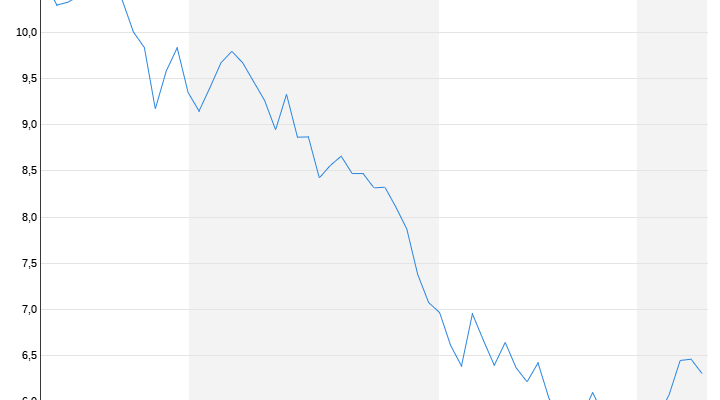aircraft on standby
Wanderlust gets TUI back on track
05/10/2023 3:02 p.m
In April, TUI will pay back the last state aid. In view of the great desire to travel among Germans and the willingness to dig deeper into their pockets for vacation, the travel group sees itself on the right track. Unlike in previous years, the company is also better prepared for imponderables.
With the growing desire to travel after the Corona crisis, the TUI Group is heading for a similar number of customers in the summer as before the pandemic. So far, TUI boss Sebastian Ebel has counted around 8.3 million bookings for the most important holiday months, which is only four percent fewer than at the same time in 2019. The manager wanted to know when presenting the summer whether the summer was a little weaker or a little better than it was then Do not predict the quarterly figures of the world’s largest travel group. He also did not dare to make a more precise profit forecast for the current financial year.
The state economic stabilization fund (WSF) and the state bank KfW saved TUI from going under with a total of 4.3 billion euros during the Corona crisis. In the meantime, TUI is approaching much better times again. In view of the large number of bookings for the summer, Ebel sees the group on course to “significantly” increase the operating result adjusted for special items (adjusted EBIT) in the current financial year by the end of September. After billions in losses during the Corona crisis, TUI had again earned 409 million euros from operations in the past financial year. But that was still significantly less than before the pandemic: In the 2018/19 financial year, the company would have earned around 1.2 billion euros in day-to-day business without the burden of the flight ban for the Boeing 737 Max jets at the time.
Prices five percent above last year
TUI intends to build on this level again in the coming years. In any case, for the summer of 2023, Ebel assumes that the group will be able to at least compensate for the costs that have increased with inflation through higher travel prices. Because customers are once again digging deeper into their pockets for their holidays. According to the information, the average price of TUI trips sold for the summer is five percent higher than in the previous year. Compared to the summer of 2019, people spend an average of 26 percent more.
According to Ebel, TUI has armed itself against impending bottlenecks and cancellations in air traffic this summer. “We have taken absolute precautions, unlike in previous years.” The group always keeps 12 to 13 aircraft on standby. In addition, the company has already received all new aircraft that are planned for summer.
In the second business quarter up to the end of March, TUI continued to recover from the corona pandemic in day-to-day business. Compared to the same period of the previous year, sales increased by around half to around 3.2 billion euros. The seasonal operating loss before special effects (adjusted EBIT) fell by a good quarter to around 242 million euros. The net loss attributable to the shareholders increased by almost nine percent to 364 million euros, also due to a lower tax credit.
In April, TUI repaid the last state aid to the WSF with the help of a capital increase. Of the aid funds from the pandemic, the group only retained a credit line of 1.1 billion euros with KfW, but is currently not using it.
